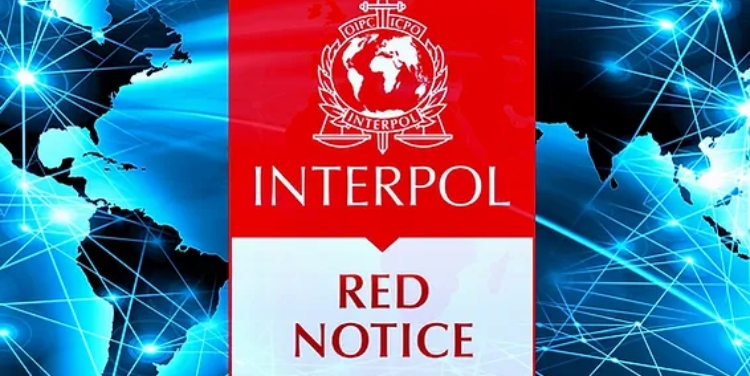An Interpol Red Notice is an international law enforcement tool widely used to coordinate the arrest and extradition of individuals wanted for crimes. However, there are often instances where this mechanism is misused, resulting in the rights and freedoms of those sought being compromised. Let’s examine the key aspects of protection and strategies for contesting such cases, and find out how Interpol law firm can help you with them.
What is a Red Notice from Interpol?
An Interpol Red Notice is an official notification distributed among member countries of the organisation with the aim of locating and arresting a person sought for extradition or to face criminal charges. Despite its name, a Red Notice is not an international arrest warrant. It serves as a request for the temporary detention of an individual with the intention of their subsequent handover to the law enforcement authorities of the country that initiated the request.
An Interpol Red Notice is often issued for individuals suspected of committing serious crimes, such as terrorism, human trafficking, drug trafficking, financial fraud, and other international crimes. However, it’s important to note that a Red Notice does not always guarantee the extradition of the person sought, as extradition is governed by the domestic laws of member countries and international treaties.
The Purpose and Functions of a Red Notice
The primary purpose of Interpol’s red notice is to facilitate international cooperation in law enforcement practices and to simplify extradition procedures. It allows law enforcement agencies of member countries to exchange information about wanted individuals and their suspected whereabouts.
The functions of the red alert include:
- Identification and detention: assists in identifying and detaining a person wanted in another country.
- Extradition: simplifies the procedure for extraditing a wanted person to the country that initiated the request.
- Preventing flight: It serves as a means to prevent evasion of justice by crossing borders.
However, despite noble intentions, a red notice can be misused, necessitating effective protection strategies.
Legal grounds for contesting a red notice
During Interpol red notice defence there various legal grounds for challenging it. Let’s consider the key ones:
Political motivation
One of the grounds for challenging a red notice is its use for political purposes. Article 3 of Interpol’s constitution prohibits interference in matters of a political nature. This means that notices issued with political objectives contravene Interpol’s principles and can be contested.
Examples of political motivation include:
- Persecution of opposition leaders;
- Repression against dissidents and human rights activists;
- The use of criminal prosecution as a tool for political struggle.
Violation of human rights
Another basis for challenging a red notice is the violation of human rights. In accordance with the Universal Declaration of Human Rights and the European Convention on the Protection of Human Rights and Fundamental Freedoms, every individual has the right to a fair trial and protection against arbitrary detention.
Examples of human rights violations include:
- The use of torture or cruel treatment;
- The unavailability of a solicitor or a fair judicial hearing;
- Persecution on the grounds of race, religion, nationality, or political beliefs.
Absence of double jeopardy
Dual criminality means that the act for which a person is sought must be recognised as a crime both in the country that issued the notice and in the country where they are located. If such correspondence is lacking, it can serve as grounds for challenging the notice.
Examples of the absence of double jeopardy include:
- Actions that are considered a crime in one country but are not recognised as such in another;
- Crimes related to cultural or legal differences between countries.
Insufficient evidence
Interpol requires sufficient evidence to support the charges in order to issue a red notice. If the evidence is lacking or insufficient, this could be grounds for challenge.
Examples of insufficient evidence include:
- Lack of witness statements or material evidence;
- Incomplete or dubious investigative materials.
Extradition ban in accordance with the treaty
Some international treaties and agreements stipulate a prohibition on extradition on certain grounds. If the country where the person sought is located has such a treaty with the initiating country, this can serve as a basis for refusing extradition and cancelling the notice.
Examples of extradition bans include:
- Ban on extradition for political crimes;
- Guarantees against the extradition of individuals facing the death penalty or cruel treatment.
Interpol case lawyers
Legal defence against Interpol red notices requires a high level of qualification and professional experience. Lawyers specialising in international law and matters related to Interpol play a critical role in protecting clients’ interests. The solicitors at the “Collegium of International Lawyers” in London provide professional services in the area of defence against wrongful red notices. Our solicitors possess deep knowledge and significant experience in the field of international law, enabling them to effectively protect the rights and interests of clients at all stages of the process.
We recommend seeking advice from qualified solicitors to assess your situation and develop a defence strategy. The solicitors at the “Collegium of International Lawyers” are ready to offer the following services: expert analysis of your case and identification of legal grounds for contesting the notice, development of a personalised defence strategy that takes into account all aspects of your case, as well as representing clients’ interests in international courts and law enforcement agencies.
Don’t put off addressing the issue — seeking legal assistance in a timely manner will help minimise risks and effectively protect your rights. Our specialists will provide reliable protection against Interpol red notices and ensure comprehensive support at all stages of the process.
David Prior
David Prior is the editor of Today News, responsible for the overall editorial strategy. He is an NCTJ-qualified journalist with over 20 years’ experience, and is also editor of the award-winning hyperlocal news title Altrincham Today. His LinkedIn profile is here.













































































